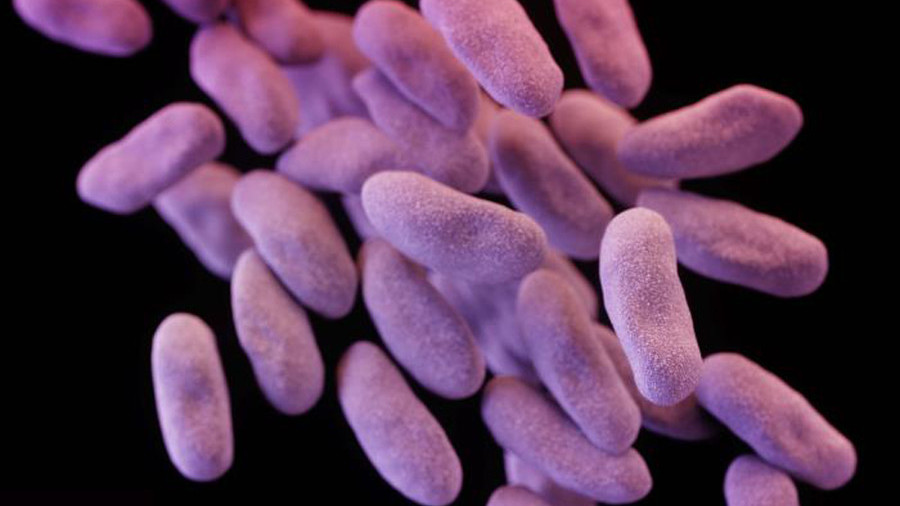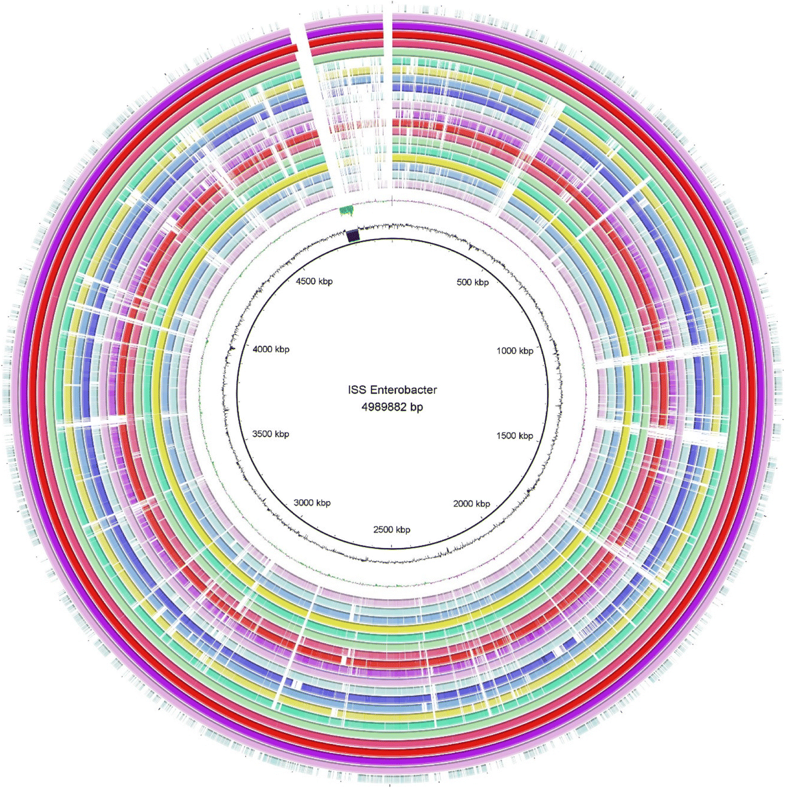- Joined
- Aug 8, 2008
- Messages
- 6,070
- Points
- 83
The human bodies and the medicine invented by human ONLY WORKS ON PLANET EARTH! Not OUTSIDE! In space man will be eaten alive by space bugs!
https://www.rt.com/usa/444808-antibiotic-resistant-bacteria-space/
Mutant superbugs menace future space station expeditions – NASA
Published time: 25 Nov, 2018 01:27 Edited time: 25 Nov, 2018 01:33
Get short URL

© Reuters / Handout
Resembling a bacterium recently discovered infecting newborns and one elderly immunocompromised patient across three hospitals, the Enterobacter bugadensis strains found on the ISS were not infectious to humans in their current form. However, their genomes are similar enough to three pathogenic Earth strains to warrant further study, according to researchers at California Institute of Technology's Jet Propulsion Laboratory Biotechnology and Planetary Protection Group.
Read more
 Blast from the past: Floppy disks found in space (PHOTO)
Blast from the past: Floppy disks found in space (PHOTO)
All five bacterial strains were resistant to five of the most commonly-used antibiotics, including penicillin, and "resistant or intermediate resistant" to two more. Enterobacter species are commonly found in the human intestinal tract, as well as in sewage and soil, but they have also been implicated in a wide array of hospital-acquired infections, including endocarditis and bacteremia in addition to skin and soft tissue, urinary tract, lower respiratory tract, and intra-abdominal infections.
The space-bugs have a 79 percent probability of potentially infecting humans, according to a computer analysis the researchers performed, but senior research scientist Dr. Kasthuri Venkateswaran stated that there was no cause for alarm (yet), emphasizing the need to conduct further studies in living creatures to determine how environmental factors related to space travel affected the bacteria.

Comparison of ISS E. bugadensis with other Enterobacter genomes © BMC Microbiology
Microgravity is known to increase a bacterium's tendency to acquire foreign genetic material and to become resistant to metals and antibiotics, factors which could predispose the ISS E. bugadensis strains toward increased virulence in the future.
A Russian experiment concluded in July similarly found that terrestrial bacteria sent to space exhibited a marked increase in aggression and antibiotic resistance upon their return to Earth. The Biorisk experiment sent 68 different organisms into space in 2005 to see whether terrestrial or other life forms could survive interplanetary travel.
Four of the E. bugadensis samples were collected from the space station's toilet, while one was found on the Advanced Resistive Exercise Device foot platform in March 2015, part of a wider effort to conduct a microbial census of the station.
If you like this story, share it with a friend!
https://www.rt.com/usa/444808-antibiotic-resistant-bacteria-space/
Mutant superbugs menace future space station expeditions – NASA
Published time: 25 Nov, 2018 01:27 Edited time: 25 Nov, 2018 01:33
Get short URL

© Reuters / Handout
- 204
Resembling a bacterium recently discovered infecting newborns and one elderly immunocompromised patient across three hospitals, the Enterobacter bugadensis strains found on the ISS were not infectious to humans in their current form. However, their genomes are similar enough to three pathogenic Earth strains to warrant further study, according to researchers at California Institute of Technology's Jet Propulsion Laboratory Biotechnology and Planetary Protection Group.
Read more
All five bacterial strains were resistant to five of the most commonly-used antibiotics, including penicillin, and "resistant or intermediate resistant" to two more. Enterobacter species are commonly found in the human intestinal tract, as well as in sewage and soil, but they have also been implicated in a wide array of hospital-acquired infections, including endocarditis and bacteremia in addition to skin and soft tissue, urinary tract, lower respiratory tract, and intra-abdominal infections.
The space-bugs have a 79 percent probability of potentially infecting humans, according to a computer analysis the researchers performed, but senior research scientist Dr. Kasthuri Venkateswaran stated that there was no cause for alarm (yet), emphasizing the need to conduct further studies in living creatures to determine how environmental factors related to space travel affected the bacteria.

Comparison of ISS E. bugadensis with other Enterobacter genomes © BMC Microbiology
Microgravity is known to increase a bacterium's tendency to acquire foreign genetic material and to become resistant to metals and antibiotics, factors which could predispose the ISS E. bugadensis strains toward increased virulence in the future.
A Russian experiment concluded in July similarly found that terrestrial bacteria sent to space exhibited a marked increase in aggression and antibiotic resistance upon their return to Earth. The Biorisk experiment sent 68 different organisms into space in 2005 to see whether terrestrial or other life forms could survive interplanetary travel.
Four of the E. bugadensis samples were collected from the space station's toilet, while one was found on the Advanced Resistive Exercise Device foot platform in March 2015, part of a wider effort to conduct a microbial census of the station.
If you like this story, share it with a friend!
